First published in 2006
Copyright 2006
David Buswell
The right of David Buswell to be identified as the author of this work has been asserted by him in accordance with Copyright, Designs and Patents Act 1998.
All rights reserved. No reproduction, copy or transmission of this publication may be made without written permission. No paragraph of this publication may be reproduced, copied or transmitted save with the written permission or in accordance with the provisions of the Copyright Act 1956 (as amended). Any person who does any unauthorised act in relation to this publication may be liable to criminal prosecution and civil claims for damage.
Although the author and publisher have tried to make the information as accurate as possible, they accept no responsibility for any loss, injury or inconvenience sustained by any person using this book.
Paperback ISBN 9781904312222
ePub ISBN 9781907685323
Kindle 9781907685330
Published in the UK by www.mxpublishing.co.uk

About The Author

David Buswell runs Virtuoso Coaching, a consultancy specialising in helping musicians from all branches of the profession to achieve peak performance.
He has worked with high-achieving performers from the classical tradition at the Royal College of Music, London, with rock and pop musicians at Drumtech, London, and with indian classical dancers in Ontario, Canada. His private clients include classical, pop and rock instrumentalists, ensemble and orchestral players, singers, actors and dancers.
David was educated at Uppingham School, Leeds Polytechnic, Manchester University and the University of East London. He holds a postgraduate diploma in counselling and is qualified as a Practitioner and Master Practitioner in Neuro Linguistic Programming [NLP] and as a NLP Coach. He is a member of the International Coaching Federation.
David is a pianist, church organist and choir trainer. He has been organist of several churches in Leeds, Assistant Director of the Bradford Choristers and has taken choirs to sing in a number of UK cathedrals.
Acknowledgements
First my thanks to Christopher Connolly of Sporting Bodymind for inviting me to work with him on the Zoning-In project at the Royal College of Music, London in 2001-2002 and at an RCM summer school in Lugano in August 2002. And also to:
 Francis Seriau, Director and Founder of Guitar-X, Drumtech and Vocaltech, who asked me to deliver six modules on Performance Psychology to Master Performance students and so encouraged me to collect my very random thoughts, and refine and compress them into something passing for a structure.
Francis Seriau, Director and Founder of Guitar-X, Drumtech and Vocaltech, who asked me to deliver six modules on Performance Psychology to Master Performance students and so encouraged me to collect my very random thoughts, and refine and compress them into something passing for a structure.
 Aaron Williamon of the Royal College of Music and the Zoning-In project.
Aaron Williamon of the Royal College of Music and the Zoning-In project.
 Ian McDermott, Jan Elfine and their fellow trainers at ITS (International Training Seminars) who taught me all I know about NLP. I acknowledge their hand in this book and apologise (if it is necessary) for my shameless adaptation of NLP approaches, thinking and techniques.
Ian McDermott, Jan Elfine and their fellow trainers at ITS (International Training Seminars) who taught me all I know about NLP. I acknowledge their hand in this book and apologise (if it is necessary) for my shameless adaptation of NLP approaches, thinking and techniques.
 Angela McAdam-Thomson, and Tad James from whom I learned most of what I know about trance and hypnosis.
Angela McAdam-Thomson, and Tad James from whom I learned most of what I know about trance and hypnosis.
 The people who contributed to my musical education Michael Holman, Jill Bean, Kenneth Baird, Keith Dennis, Dr Donald Hunt and Simon Carter.
The people who contributed to my musical education Michael Holman, Jill Bean, Kenneth Baird, Keith Dennis, Dr Donald Hunt and Simon Carter.
 Those who set me on the search for my Self which has lead me to where I am now - in particular, Rona, but also The Findhorn Community, and the training staff at the Psychosynthesis & Education Trust, and my fellow students, Shirley Briggs, Georgie Howarth, Ruth Pimenta, and Jan Shepheard.
Those who set me on the search for my Self which has lead me to where I am now - in particular, Rona, but also The Findhorn Community, and the training staff at the Psychosynthesis & Education Trust, and my fellow students, Shirley Briggs, Georgie Howarth, Ruth Pimenta, and Jan Shepheard.
 Angela Le Strange Meakin who sat in my garden and urged me to pursue my vision.
Angela Le Strange Meakin who sat in my garden and urged me to pursue my vision.
 Riaz Rhemtulla, a quiet, calm presence throughout the conception and delivery of this book, for being there (and for his magnificent cooking).
Riaz Rhemtulla, a quiet, calm presence throughout the conception and delivery of this book, for being there (and for his magnificent cooking).
 Chris Bush, Helen Chapman and Rachel Alexander who encouraged me in the planning and writing of this book and Steve Emecz and Bob Gibson who had a significant hand in its production.
Chris Bush, Helen Chapman and Rachel Alexander who encouraged me in the planning and writing of this book and Steve Emecz and Bob Gibson who had a significant hand in its production.
 And, of course, my students and clients who have consistently inspired and challenged me - and made me realise that this work is of value.
And, of course, my students and clients who have consistently inspired and challenged me - and made me realise that this work is of value.
This multi-disciplinary project gave rise to a book edited by Williamon, A., Musical Excellence, Oxford University Press, 2004 in which Christopher Connolly and Aaron Williamon write about the application of Mental Skills Training (pp 221 - 245) to the project
Further Assistance
As I say many times during this book, the techniques and exercises contained herein are but a starting point. As with any skill, they must be practiced so that they become second nature and are reinforced.
For many readers it will be sufficient to learn the technique, to practice it regularly and to use it in times of stress. For others, a DIY approach does not work as well as working one-to-one with another person, and, for you, there are two ways in which I can help you further:
You can attend one of my workshops during which you will have the opportunity to work with me personally;
You can arrange an initial consultation with me and follow-up sessions when I will guide you to acquire the skills you will need to carry you through your performing life with confidence.
Details of workshops and of the various ways in which you can contact me are to be found at my website www.virtuosocoaching.com
I look forward to working with you.
Disclaimer
Use of the techniques and procedures described in this book is done at your own risk. David Buswell cannot be held responsible in any way for any consequences arising out of practicing any of the techniques and procedures. The information given is strictly for personal use.
The techniques given in this book have been drawn in the main from Neuro Linguistic Programming. NLP techniques have a universal provenance and are widely published in books and on the internet as well as being used by individual trainers. Where possible, I have referred to the source from which I obtained the technique. If I have failed to acknowledge a source, I apologise and will make good the error in any future editions.
Performance Strategies For Musicians
1. MENTAL WELLBEING AND PEAK PERFORMANCE
Chapter 1
Musicians And Mental Wellbeing
Being A Musician
The life of a performing musician is a demanding one. A high level of technical skill must first be acquired and then maintained. Due to the constant and pressing requirement to earn a living, many musicians have busy lives based on a portfolio career consisting of performance, teaching, recording and freelancing. In between these demands must be squeezed the hours of practice necessary to maintain technical proficiency and to be fully prepared for the next engagement. Such a life is lonely: as well as the isolation of the practice room, there is also the travel to and from engagements, the nights away from home, and the reluctance to share performing difficulties with colleagues.

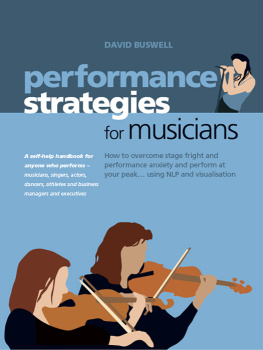
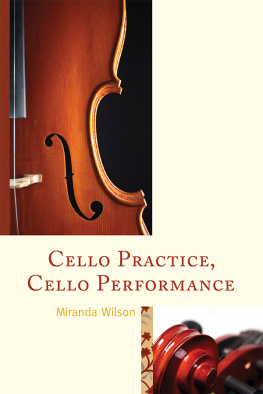
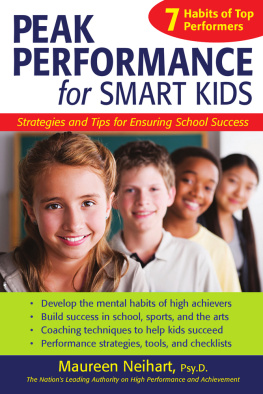
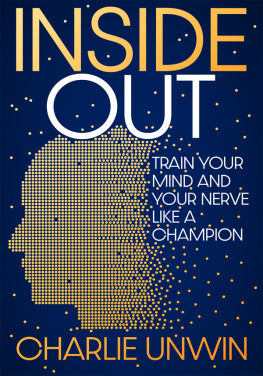
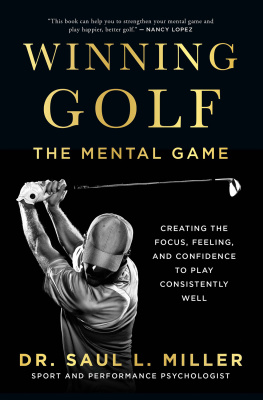



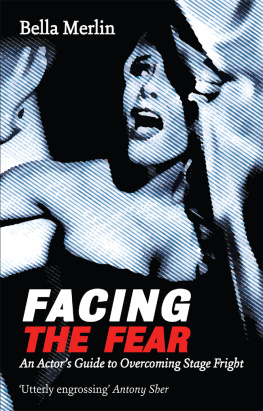
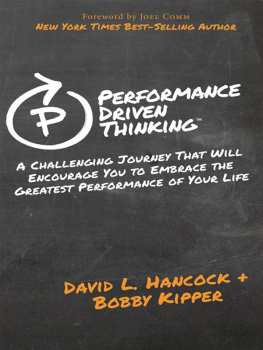
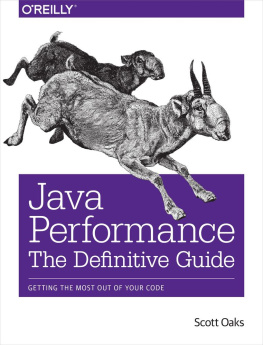



 Francis Seriau, Director and Founder of Guitar-X, Drumtech and Vocaltech, who asked me to deliver six modules on Performance Psychology to Master Performance students and so encouraged me to collect my very random thoughts, and refine and compress them into something passing for a structure.
Francis Seriau, Director and Founder of Guitar-X, Drumtech and Vocaltech, who asked me to deliver six modules on Performance Psychology to Master Performance students and so encouraged me to collect my very random thoughts, and refine and compress them into something passing for a structure.